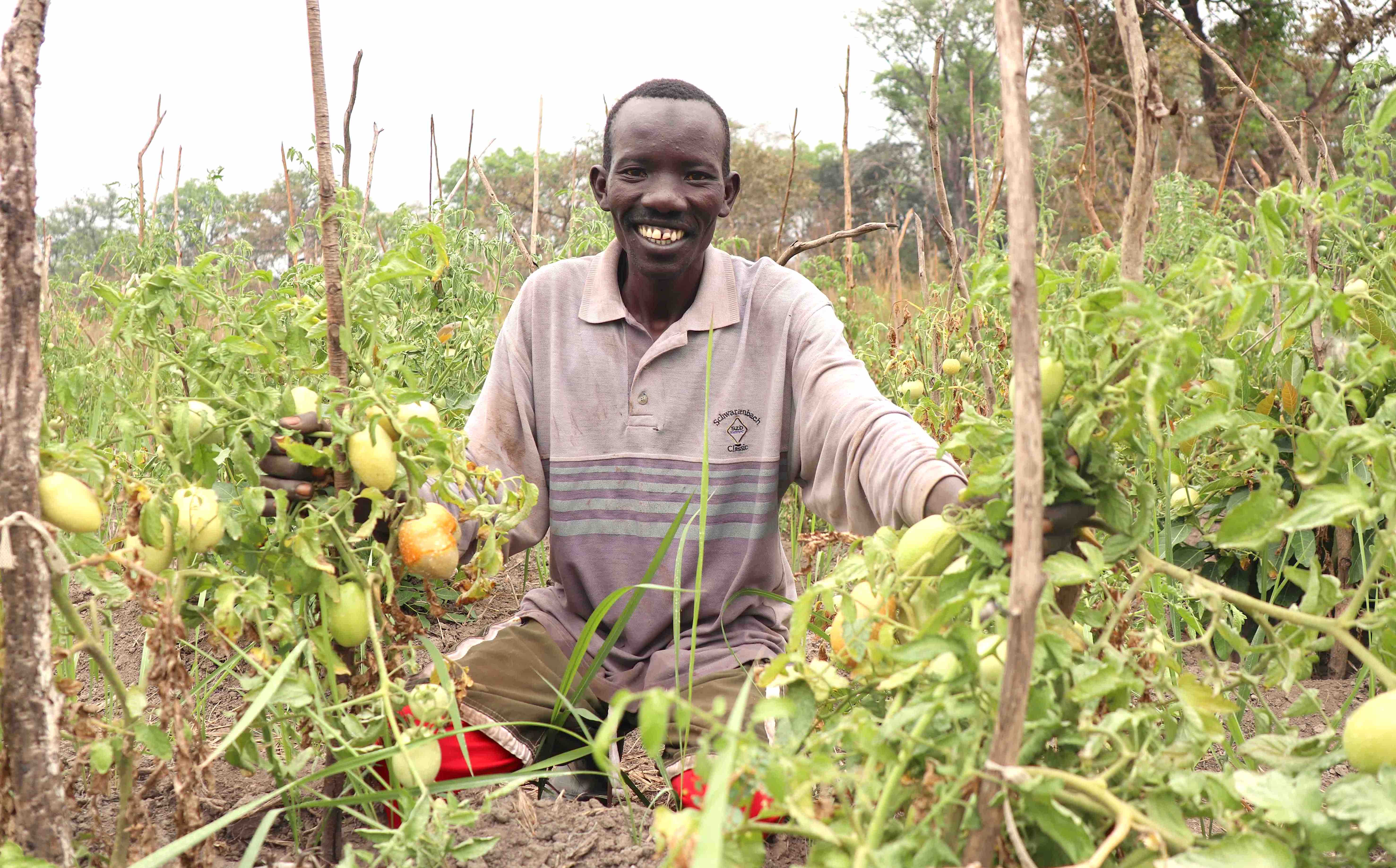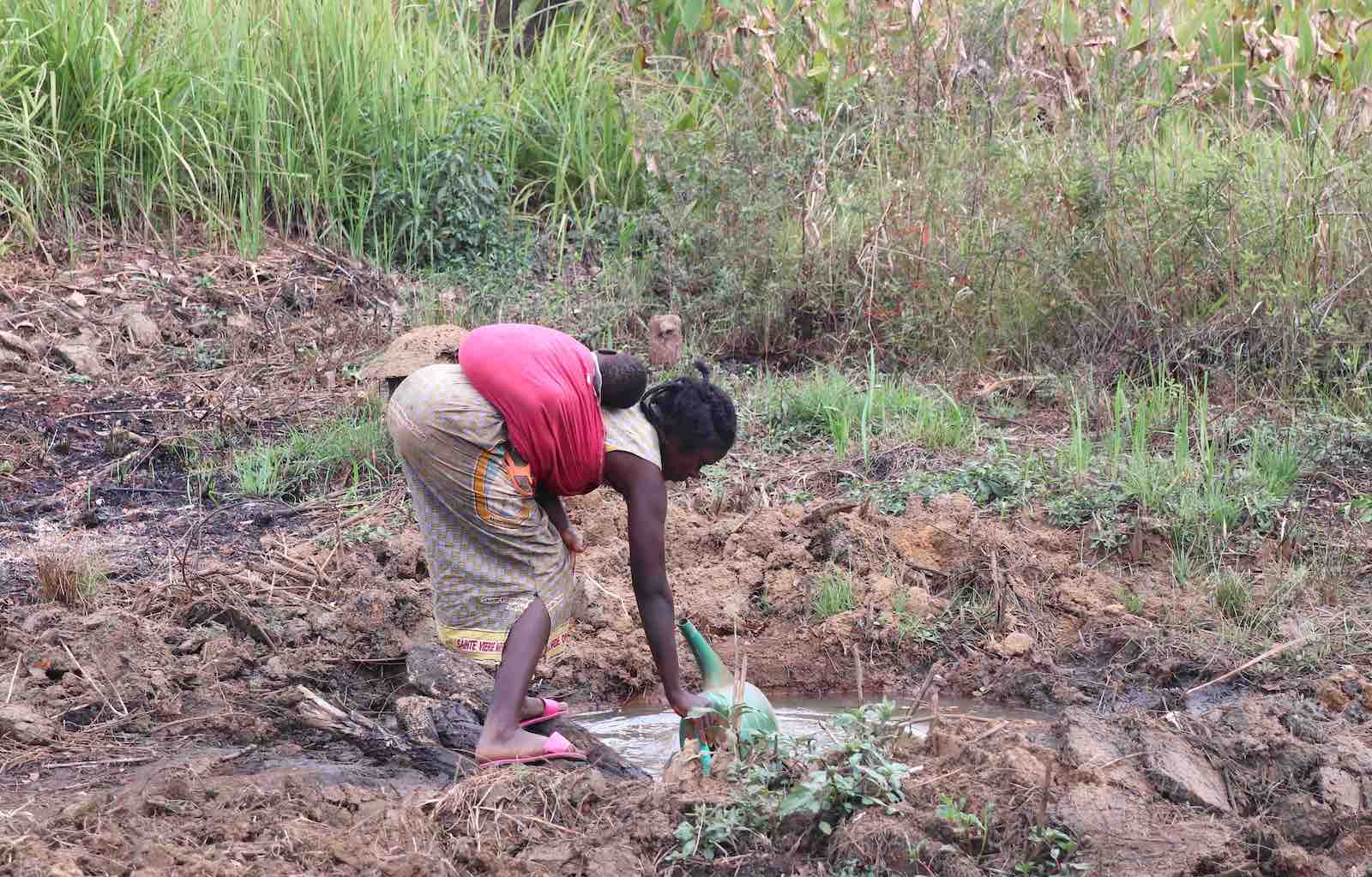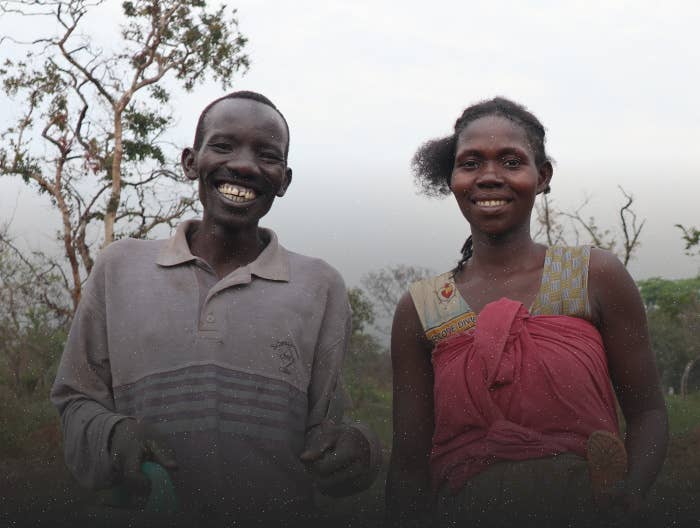When Dijas Nasran, a father of five, fled from the Nuba mountains of Sudan to neighbouring South Sudan, he did not imagine a good life was possible for his family in a refugee camp. “I was worried about how my family would survive, he said.” 40-year-old Dijas once owned acres of farmland in his country but when the conflict intensified, he feared for his family’s safety and fled. When they arrived, World Vision provided monthly food rations and cash assistance to them, supported by the World Food Programme. In addition, World Vision supplied farm tools and seeds to grow vegetables, clean water, education for the children and health services.

Dijas is proud and all smiles as he shows the vegetables he has grown in his garden. The garden is not only providing them with income; it also supplies the family with healthy food.
“We have everything we need and my family is happy because not only do we receive assistance but also we have access to markets where I can sell my produce. “I produce vegetables like onions, tomatoes, okra, and watermelon,” Dijas said. “I sell most of them in the market and keep some for home consumption.” Hellen, Dijas’s wife, helps him on the farm. “My husband and I go to the farm every morning when our children are in school. We are always excited to know that even if the food assistance were to stop, we can feed our children and still earn income from our produce,” Hellen added.

Hellen is very supportive of her husband's gardening work seeing the positive results in the family's well-being.
Dijas said World Vision supported over 1,000 families with seeds, work tools, and pesticides after completing the training in partnership with UNHCR. Fortunately, the host community has been very supportive of providing the refugees access to farmlands and markets. They also benefit from the products and services given to the refugees. Makpandu Refugee Camp continues to receive refugees despite the risks posed by the COVID-19 pandemic. A trained team screens new arrivals and ensures that they follow the 14-day-quarantine. Justin Elia, World Vision’s Project Manager added: “World Vision’s experience with Ebola prepared us how to efficiently respond to the COVID-19 using almost the same precautionary measures and equipment.”
